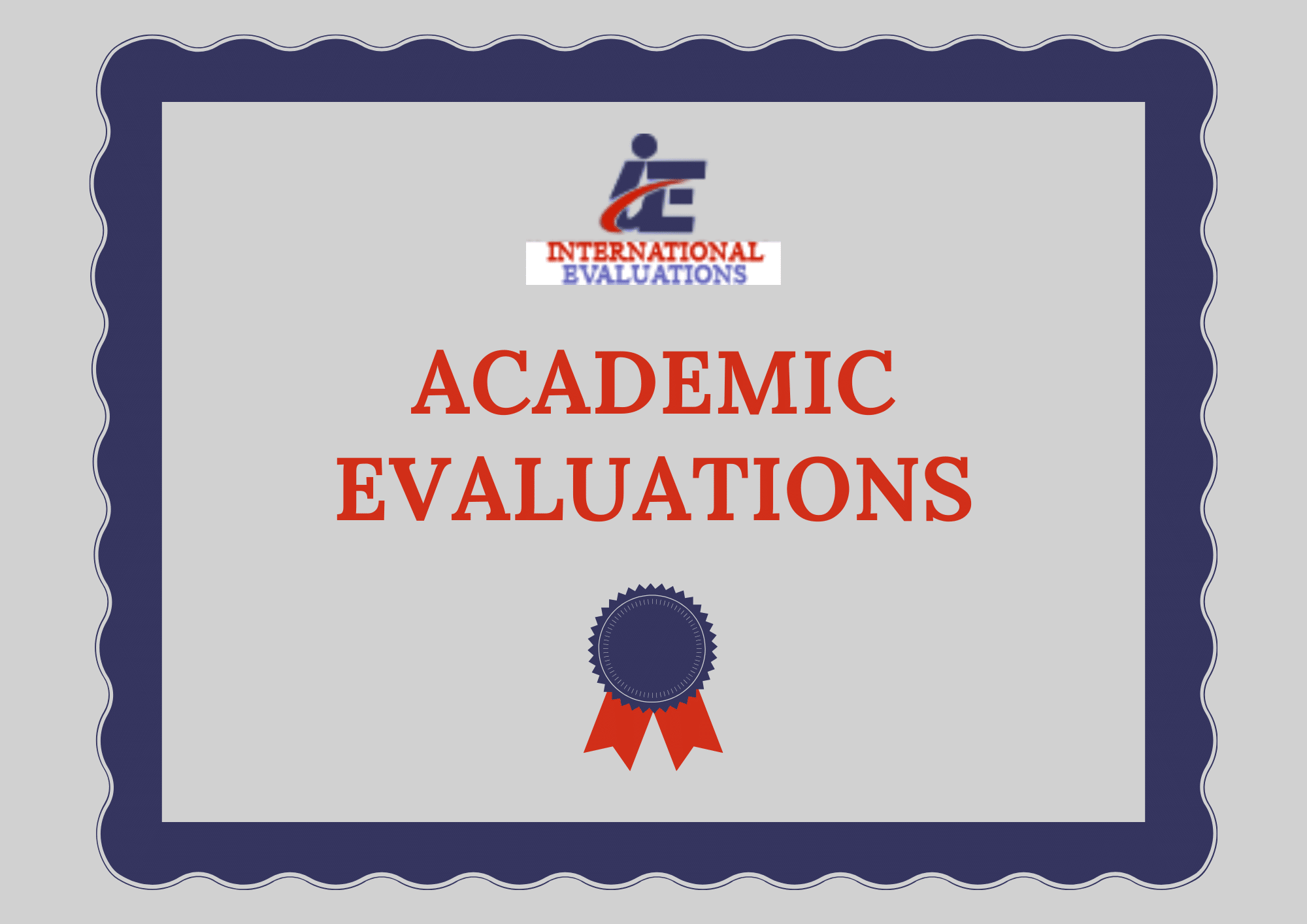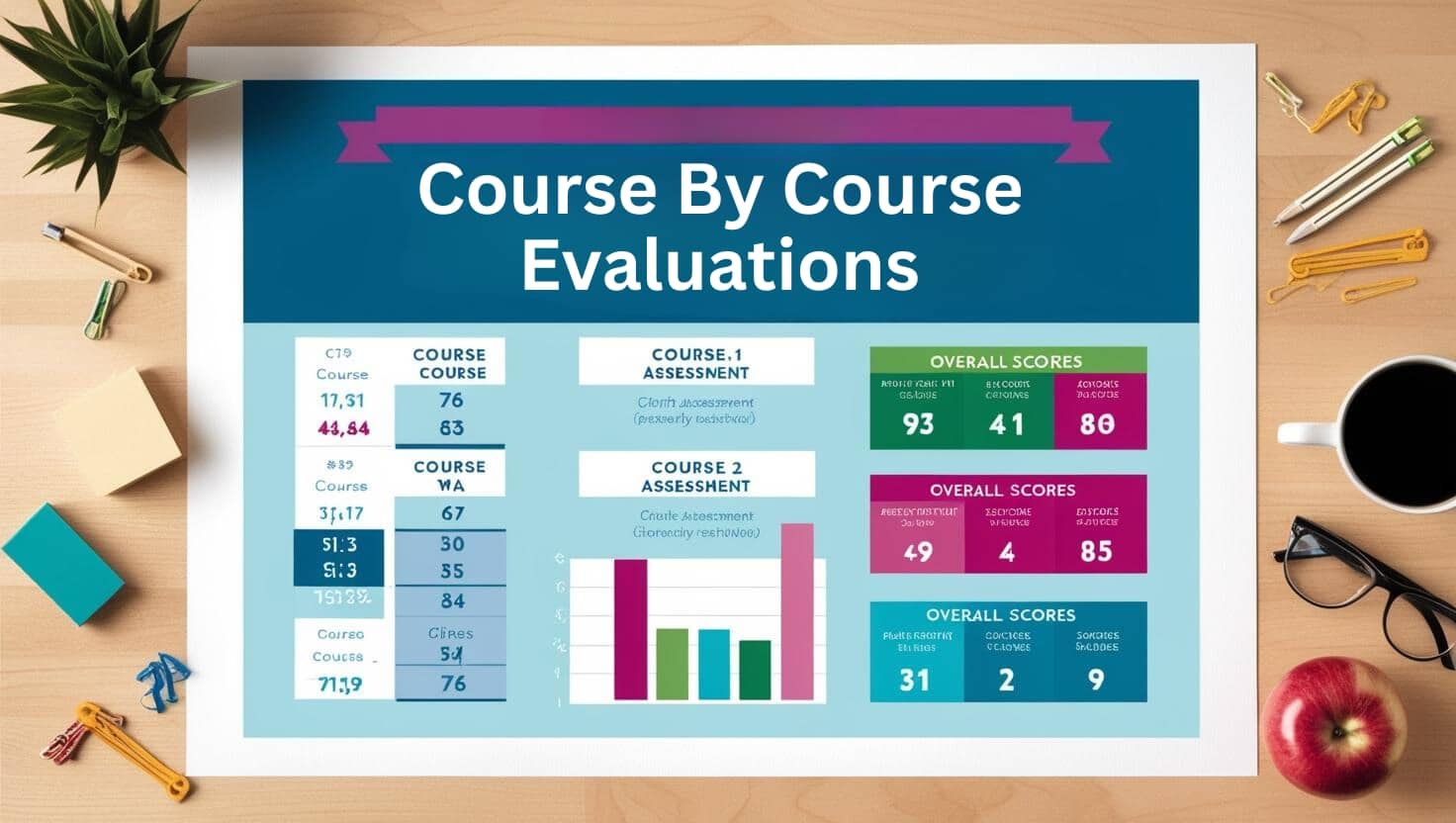Introduction
In an increasingly globalized world, the need for precise scholastic credential examinations has actually never been more vital. As people seek to advance their education or gain work throughout borders, institutions and companies need a trusted understanding of the qualifications being presented. This need has actually caused the rise of international credential evaluation services, a sector committed to assessing instructional accomplishments from various countries.
Among numerous evaluation methods, the course-by-course credential evaluation stands apart as one of the most extensive and precise methods. This comprehensive analysis not just translates academic credentials but also examines course material, grades, and total academic efficiency. In this article, we will look into the complexities of course-by-course evaluations, exploring their significance, approach, advantages, and much more.
Understanding Course-by-Course Evaluations
What is a Course-by-Course Evaluation?
A course-by-course assessment provides in-depth insight into an individual's scholastic history. Unlike a general evaluation that summarizes degrees and institutions participated in, a course-by-course evaluation breaks down:
- Each course taken Grades received Credit hours earned Comparisons with similar courses in the U.S. academic system
This meticulous approach allows for a nuanced understanding of a prospect's scholastic capabilities.
Why Are Course-by-Course Evaluations Important?
The importance of course-by-course evaluations can not be overemphasized. Here are some reasons that they are critical:
Precision: They use in-depth assessments that can influence admissions choices or task placements. Transparency: Provides clear insights into foreign education systems. Employability: Numerous employers choose candidates with well-documented academic histories.Who Requirements Course-by-Course Evaluations?
Individuals seeking higher education or employment opportunities abroad typically require these examinations. Typically, they consist of:
- International students applying to U.S. colleges or universities Professionals looking for licensure in regulated fields Immigrants pursuing task chances in different sectors
The Process of Course-by-Course Evaluations
Steps Involved in a Course-by-Course Evaluation
The journey through a course-by-course evaluation involves numerous essential steps:
Document Submission: Candidates send all pertinent records and documents. Verification: The assessing firm confirms the credibility of these files with issuing institutions. Analysis: Each course is examined for equivalency in terms of U.S. standards. Report Generation: An in-depth report is produced describing findings.Required Documentation for Evaluation
To undergo a course-by-course examination effectively, candidates should supply specific documentation:
- Official transcripts from all post-secondary institutions attended Translations (if necessary) by certified translators Any extra supporting files asked for by the evaluating agency
International Credential Evaluation Services
The Function of Credential Assessment Services
International credential examination services function as intermediaries in between foreign instructional systems and U.S.-based organizations or employers. These agencies evaluate foreign degrees and identify their equivalence in terms of U.S. education.
Choosing the Right Examination Service
Selecting a suitable credential assessment service can substantially impact your application procedure. Consider aspects such as:
- Accreditation status Experience with specific countries' instructional systems Types of evaluations offered (general vs course-by-course)
Benefits of Course-by-Course Credential Evaluations
Enhanced Academic Transparency
One significant advantage is enhanced openness regarding a candidate's academic background; organizations can evaluate prospects more effectively.
Improved Employment Opportunities
For task applicants, having a comprehensive report increases reliability and improves opportunities throughout working with processes.
Streamlined Admissions Processes
Colleges and universities can make quicker choices based upon comprehensive reports that supply clearness on a candidate's qualifications.
Work Experience Evaluation
Understanding Work Experience Evaluation
In addition to academic credentials, numerous candidates have significant work experience that may also need recognition through a skilled opinion letter or comparable assessment method.
Why is Work Experience Important?
Employers typically consider work experience along with formal education when identifying viability for positions. Having this examined can display abilities and competencies acquired through useful application instead of just theoretical knowledge.
Expert Viewpoint Letters
What is a Professional Opinion Letter?
A specialist viewpoint letter serves as documents from experts attesting to a person's certifications based on their evaluation of the applicant's work experience relative to industry standards.

Importance of Professional Viewpoint Letters
These letters confirm non-traditional learning experiences and bridge gaps in between official education and real-world applications-- essentially boosting one's profile in competitive job markets.
Business Plan Evaluation
Understanding Company Plan Evaluation
For entrepreneurs seeking financing or assistance from banks or financiers, a robust service plan evaluation is essential-- not just does it describe company objectives however likewise assesses expediency through market analysis.
Importance in Entrepreneurship
Evaluating business plans helps recognize possible weak points before presenting them to stakeholders; hence increasing opportunities for success through informed adjustments based on professional https://jaidenjphp276.fotosdefrases.com/course-by-course-credential-assessment-a-detailed-technique feedback.
Course Equivalency Comparisons
How are Course Equivalencies Determined?
Each country has its unique grading systems and curricular structures; therefore establishing equivalencies needs cautious analysis by experienced evaluators who think about various elements such as:
- Credit hours Course content Learning results
Comparative Tables
|Foreign System|U.S Equivalent|Description|| ----------------|-----------------|-------------|| 3-Year Degree|Associate Degree|Comparable learning outcomes|| 4-Year Degree|Bachelor's Degree|Comprehensive curriculum coverage|
Challenges Dealt with in Course Evaluations
Common Issues Come across Throughout Evaluations
Evaluators might deal with obstacles consisting of disparities in grading systems, incomplete documentation submitted by candidates, or distinctions in curriculum focus across countries.
Resolving Challenges
Effective communication in between critics and candidates can assist solve obscurities quickly-- quickly dealing with any issues ensures smoother processing times while preserving accuracy throughout evaluations.
Legal Factors to consider in Credential Evaluations
Navigating Legalities
Credential evaluators must adhere strictly to legal standards worrying privacy laws when managing personal information associated with applicants' qualifications-- making sure compliance safeguards both parties involved during this sensitive process.
Risks Without Compliance
Failing to follow legal procedures may result not just in reputational damage but possible legal action should any breaches happen-- hence why selecting certified agencies familiar with local laws is vital!
FAQs About Course-by-Course Evaluations
1. What files do I require for a course-by-course evaluation? You will typically need official records from all post-secondary organizations went to in addition to any needed translations if files are not originally in English.
2. The length of time does it take to finish a course-by-course evaluation? Processing times vary by firm however normally range from 2 weeks as much as numerous months depending upon volume and intricacy involved with your case submission!

3. Can I appeal if I'm discontented with my examination results? Most respectable companies provide appeals processes; examine your chosen company's policy carefully upon getting results so you understand actions readily available need to you feel changes necessary!
4. Are online courses assessed in a different way than traditional courses? Normally speaking they're evaluated likewise; nevertheless it is essential that completion certificates suggest rigor equivalent versus normal classroom-based shipment models when assessed!
5. Exists an expiration date on my credential evaluations? While evaluations themselves don't expire per se-- institutions may have particular amount of time within which they choose viewing current variations so constantly ensure up-to-date information provided before sending applications!
6. Can I get my work experience evaluated instead? Definitely! Work experience assessments serve validating non-academic learning paths showcasing hands-on capabilities acquired outside traditional schooling settings!
Conclusion
In summation, carrying out Course-by-Course Examinations: A Detailed Analysis for Accurate Assessment gears up people navigating worldwide education landscapes with essential tools needed towards accomplishing their aspirations-- whether those include studying abroad protecting viable job opportunity in your area or worldwide! By understanding how these evaluations operate one can better prepare themselves while increasing general success rates through informed decision-making backed by comprehensive insights delivered via well-respected organizations using trustworthy assessment services tailored particularly towards private requirements within this complex field!